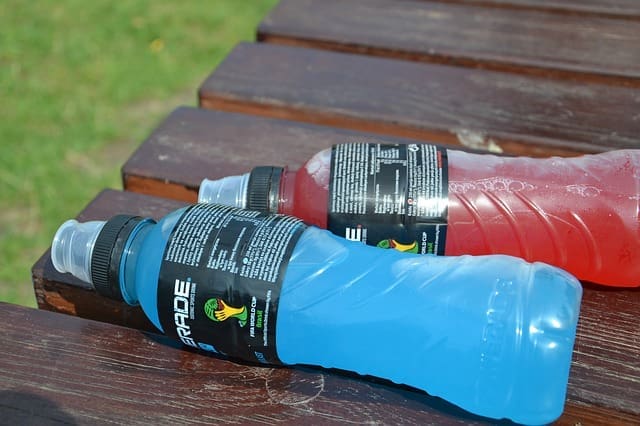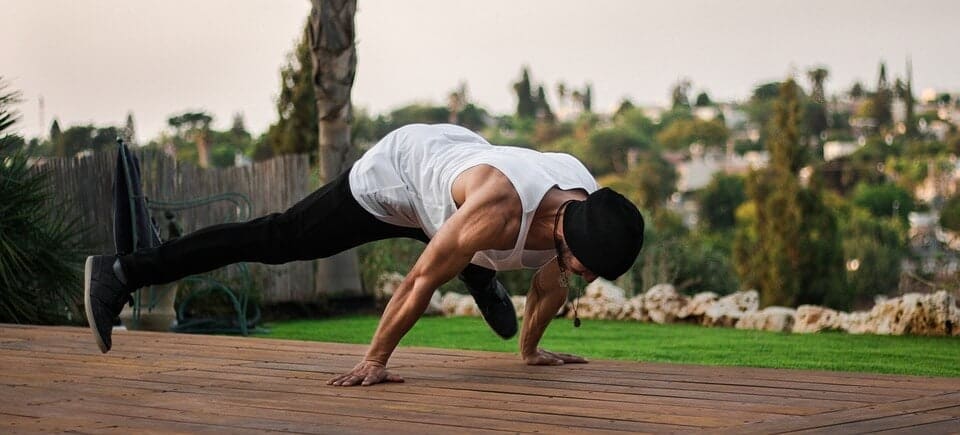Energy and sports drinks are popular fuels for a workout or a busy day. The problem with some of these low-quality sports drinks is that they provide a short-lived boost in energy but then cause a crash later.
There are other ways to provide your body with sustained energy. Keep reading to learn how to avoid crashes and fuel your workouts with quality energy.
Too Much Sugar in Many Sports Drinks
While sports drinks and energy drinks may seem like an easy way to increase energy, they aren’t the best fuel source for your workouts. Many sports drinks contain a heavy dose of added sugars. The average sports drink contains 22 grams of added sugar. Added sugar can be harmful when consumed in excess. Studies show that liquid sugar, in particular, can have a negative effect on health when consumed in large quantities over time.
You may experience a crash after indulging in high amounts of carbohydrates, especially simple sugars like in sports drinks. Sugar consumed in large quantities without protein or fat causes blood sugar spikes. This provides a surge of short-term energy, but it is not sustained for a long period of time. Although the human body needs sugar, it also needs the right amount consistently throughout the day to maintain optimal energy levels.
Excessive Caffeine
While caffeine can positively affect your mood, cognition, and exercise performance, too much caffeine can be harmful.
The amount of caffeine in energy and sports drinks varies from product to product. Consuming the amount of caffeine in one energy drink is generally considered safe, but when combined with caffeine intake from other beverages, you may exceed the recommended amount. The FDA recommends that adults consume no more than 400 mg of caffeine daily.
Excessive caffeine intake can result in anxiety, difficulty sleeping, diarrhea, muscle breakdown (rhabdomyolysis), increased blood pressure, and rapid heart rate.
If you consume sports drinks containing caffeine, try to limit them to less than 16 ounces per day and limit other caffeinated beverages to avoid excessive caffeine intake.
Pregnant and nursing women, children, and teenagers should avoid energy drinks altogether.
What ingredients to avoid in sports drinks
Sugar is an ingredient often added in high amounts to energy drinks and sports drinks. Consuming sugar-sweetened beverages like most energy drinks and sports drinks lead to blood sugar spikes that can be bad for your health, especially if you have diabetes. These blood sugar spikes have been associated with higher oxidative stress and inflammation levels, which play a significant role in the development of nearly every chronic disease.
Taurine is an amino acid that serves as a stimulant to boost physical and mental performance. The body can produce it naturally, but taurine also comes from food, mainly meat and seafood. The average American diet provides about 123 and 178 milligrams of taurine daily. Scientists found that consuming just one 8-ounce energy drink can increase your daily intake of taurine 6 to 16 times. When combined with caffeine in sports drinks, taurine may increase blood pressure and heart rate. High amounts of taurine may also impact growth and development in adolescents.
How to Get an Energy Boost Without the Jitters
There are better ways to fuel your body with sustained energy than sugary sports drinks and caffeinated energy drinks. While it’s okay to have a sports drink or an energy drink once in a while, they shouldn’t be your go-to energy source.
Get enough sleep
Sleep is critical to maintaining essential bodily functions, restoring energy, muscle tissue repair, and processing information in the brain. Inadequate sleep impacts the ability to think clearly, react, focus, and control emotions. Most adults need between 7-9 hours of sleep to support optimal functioning.
Food is fuel
Balanced meals and snacks provide your body with good nutrition to give your body and brain the energy it needs to function at its best. Next time you hit that mid-afternoon slump or want to increase energy before a workout, eat a balanced snack instead of reaching for an energy drink.
Balanced snacks include carbs, fat, protein, and fruit or vegetable. Carbohydrates provide the body with short-term energy. When eaten alone, they will only keep you energized for a short period of time. When combined with protein and fat (long-acting energy sources), you will have sustained energy for longer periods. Try carrots, hummus, pita or Greek yogurt, fruit, and granola.
Small doses of caffeine

An espresso shot or one cup of coffee can provide a quick burst of energy and increase mental focus without consuming too much caffeine. Caffeine consumed in limited quantities can provide positive benefits without the crash that follows high doses of caffeine.
Choose a better sports drink
If you’ve had an adequate sleep and fueled your body with balanced meals and snacks but still need a bit of a boost, you can try a sports drink that doesn’t contain caffeine or too many added sugars. Nakedade from Naked Nutrition is an electrolyte powder that contains minimal added sugar in the form of sucrose from sugar beets. Nakedade may help maintain energy levels and increase endurance for prolonged exercise performance. It may also help you hydrate after exercise by replenishing electrolytes lost through sweat.
Conclusion
Sports and energy drinks are a popular way to fuel up for a workout or provide energy during the midday slump. However, they may not be the best option available. Nothing replaces quality sleep and a balanced diet, but small doses of caffeine and lower sugar sports drinks can help give you a boost of energy without the crash.
Featured Image by kropekk_pl from Pixabay




